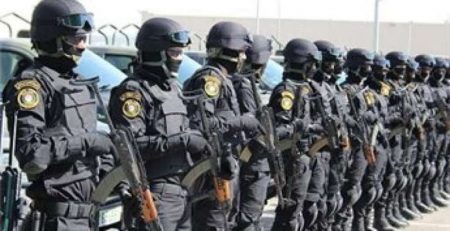Palestinian officials said, on Monday, that the Palestinian Authority (PA) would not consider resuming its controversial security coordination with Israel unless the latter acceded to a number of demands.
The PA’s security coordination with Israel has been denounced as a “revolving door” policy funneling Palestinian activists from PA jails to Israeli prisons, and is seen as a primary reason for the growing unpopularity of PA President Mahmoud Abbas.
In the wake of a deadly shoot-out at the Al-Aqsa Mosque compound, on July 14, that led to increased Israeli security measures at the holy site, the PA announced that it had suspended all contacts with Israel.
Despite Israel removing the new security measures after nearly two weeks of large-scale Palestinian protests, the PA said, in late July, that it was maintaining the coordination freeze.
Mahmoud al-Habbash, Abbas’ advisor on religious and Islamic affairs, told Ma’an News Agency, on Monday evening, that the PA did not oppose resuming security coordination, but that Israel first had to cease all military activity in Area A — the 18 percent of the occupied West Bank officially under full PA control — as well as grant the PA the right to control border crossings.
A source close to Abbas also said that Abbas was requesting that Palestinian security forces be deployed alongside Israeli and Jordanian forces at the Jordan River Crossing between Israel and Jordan, located just north of the West Bank.
![]()
“Palestinian leadership will reject any security coordination Israel asks for as long as Israel does not stop daily assaults, shootings, undercover raids, abductions of Palestinian lawmakers, officials, and children in Palestinian cities and refugee camps in the PA-controlled territories,” the unnamed source stated.
The anonymous source summarized the “countless” conditions by saying that the PA was “preventing the occupation from undermining the PA’s legal, geographical, political, and administrative sovereignty.”
“Observing agreements should be mutual and if Israel chooses not to observe them, it won’t be the only party who does that,” al-Habbash warned, adding that no regional or international parties had attempted to intervene to push for the resumption of security coordination.
Palestinian security spokesman Adnan Dmeiri said that the PA and all its executive wings were committed to the decision, despite Israeli media claiming that the PA was secretly continuing its security coordination with Israel.
Dmeiri said that existing coordination remained limited to humanitarian cases such as patients in need of urgent treatment, but that the decision was a political decision with which Palestinian security forces would “stick to until the political echelon decides otherwise.”
When asked about restrictions on Palestinian movement since security coordination was frozen, al-Habbash said that Palestinians “won’t be bound by Israeli measures as we have many alternatives.”
He added that Palestinian citizens and political leadership should bear the consequences of the Palestinian national struggle, even if that meant “some suffering in (freedom of) movement,” as such suffering, he said, was “nothing” compared to the higher national goal of getting rid of the occupation.
Israeli officials have tried to downplay the Palestinian decision, with Defense Minister Avigdor Lieberman claiming in July that “it’s not like the security coordination is an Israeli need.”
However, Israeli news daily Haaretz reported, in April, that the Palestinian Authority had detained at least 400 Palestinians in less than a year over anti-Israeli social media activity — while just as many as were detained by Israeli forces, showing the extent of security coordination’s reach.
(Photo: Samidoun Palestinian Prisoner Solidarity Network)
Opinion/Analysis 05/24/17: The Palestinian Authority Security Forces: Whose Security?

